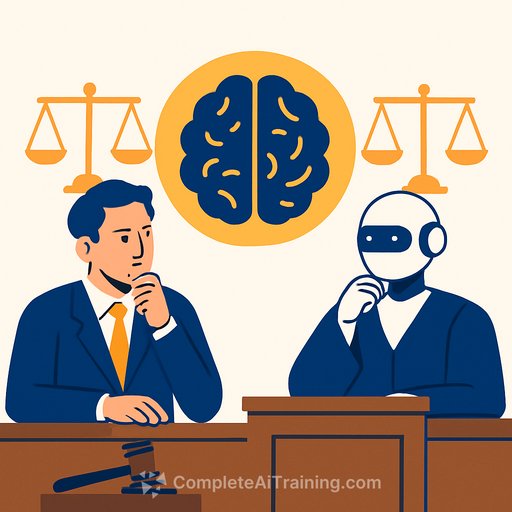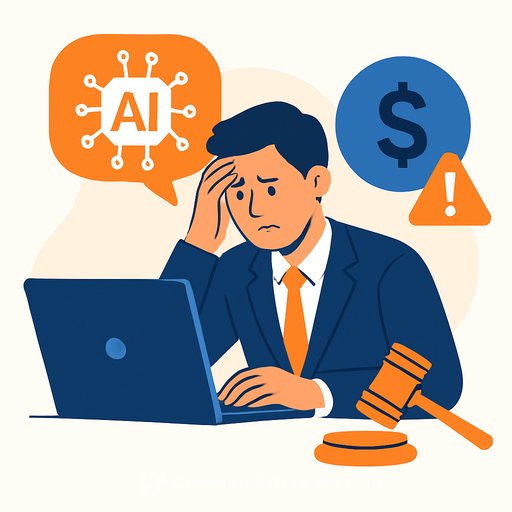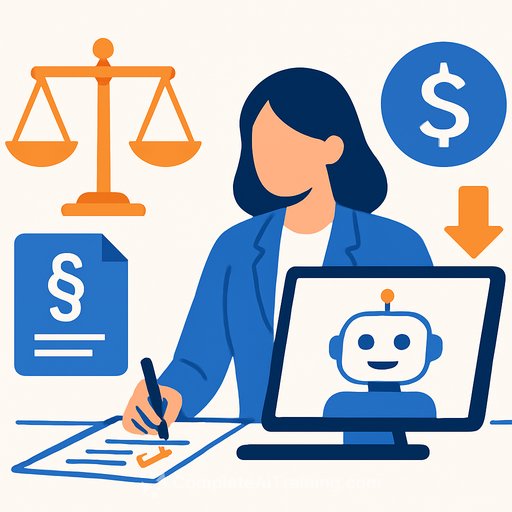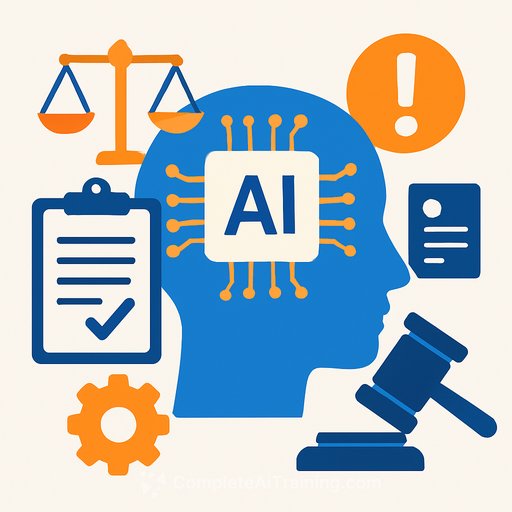Law's Next Advantage Isn't Speed - It's Wisdom
Algorithms are taking over the busywork. That's fine. What isn't fine is outsourcing the core of legal practice: judgment, discernment, and the willingness to think past first answers.
The courtroom isn't the only venue where arguments are tested anymore. Research, contracts, discovery, and even strategy are being filtered through AI. Some models have already passed the bar exam, at least in controlled settings. See the GPT-4 bar exam study if you want the data.
Yet the real question isn't whether machines can pass tests. It's whether lawyers will keep doing the slow, human work that makes good law possible.
The Legal Industry's Overreliance on AI
In 2023, two New York attorneys were sanctioned for filing a brief with fabricated citations produced by a chatbot. The issue wasn't the use of technology. It was uncritical trust. Here's the case summary.
This is the warning: speed without scrutiny trades depth for volume. You get broad searches that miss the hinge issue. You get arguments that sound tight but collapse under pressure. And you train your brain to accept plausible output instead of building real conviction.
The Missing Ingredient: Metacognition
Metacognition is thinking about how you think. It's the pause before you hit "send." It's the instinct to ask, "What's the counterfactual? Where's the weak joint?"
AI generates answers; it does not reflect. It doesn't weigh values, spot subtle bias, or decide what matters most for a client's goals. That's on us. The problem is that many teams are optimizing for throughput and responsiveness over reflection. Billables rise. Quality thins.
The Cost of Shallow Thinking
- Ethical Oversight: Rushed reliance on AI invites conflicts, privacy slips, and hidden bias.
- Client Mistrust: Clients can hear boilerplate. They hire judgment, not templates.
- Innovation Stagnation: Progress comes from asking sharper questions, not piling on tools.
As Daniel Kahneman showed, the brain defaults to quick heuristics. In law, those shortcuts can be expensive. Paradoxically, as AI gets better at producing "good enough," the market will prize lawyers who can tell the difference between good enough and sound.
How Law Schools Can Reclaim Depth
If AI will assist, schools must double down on what AI can't do: curiosity, critical thinking, moral reasoning, and meaningful connection.
- Socratic Dialogue, Upgraded: Train students to challenge their own assumptions and spot cognitive bias, not just answer faculty questions.
- Reflective Practice: After simulations and clinics, make "What did I miss?" as central as "What did I find?" (See the reflective practitioner model.)
- Ethical Thinking Labs: Work through the gray areas created by AI in surveillance, access to justice, and risk allocation.
- Creative Problem-Solving: Push divergent thinking before converging on a single theory of the case.
These are not soft skills. They are survival skills for a profession built on judgment.
How Law Firms Can Lead
- Build in the Pause: Add deliberate checkpoints before major filings or advice memos. A 10-minute pause can save a week of cleanup.
- Thinking Partnerships: Pair juniors with mentors who model curiosity and humility. Debrief process, not just outcomes.
- Reward Reflection: Recognize discernment, ethical reasoning, and creative strategy-not only speed.
- Audit AI Use: Treat AI like a capable assistant. Require source tracing, citation verification, and human sign-off. Document what was automated and why.
Practical Protocol: AI-Assisted Work, Done Right
- Scope first: Write a one-paragraph objective and success criteria before you prompt any tool.
- Source trail: Demand citations and links for every factual claim; verify at least two primary sources.
- Red-team your output: Generate the best counterargument to your position. If it stings, keep working.
- Bias check: Ask, "Whose interests are amplified or ignored if we accept this analysis?"
- Client lens: Translate findings into practical risk, cost, and timing for the client's context.
- Final human review: One owner is accountable for judgment calls. No exceptions.
From Law to Leadership
The best leaders in this field don't know the most. They think the best. They ask cleaner questions, develop teams that can disagree safely, and resist the lure of certainty.
Psychological safety isn't a buzzword; it's operational. Teams that invite reflection surface risks sooner and produce better strategy. As research on "fearless" cultures shows, you get more ethical decisions and better outcomes when people can speak up and rethink.
What To Do Next
- Set non-negotiables: No filing leaves the building without a human bias check and source verification.
- Block "thinking time": 30-60 minute weekly blocks for deep work on active matters. Protect it like a hearing.
- Create a one-page AI policy: Approved tools, acceptable uses, data handling, and review steps.
- Run post-mortems: After key matters, document what worked, what failed, and what you'd change. Keep it blameless and specific.
- Teach the counterargument: Make it routine to articulate the opponent's best case better than they can.
The Bottom Line
AI will keep getting faster. Let it. Your edge is the slow, human part: reflection, ethics, and judgment.
The firms and schools that win will pair technical fluency with deep thinking. That combination earns trust-and results.
Resources
- GPT-4 and the Uniform Bar Exam (SSRN)
- ABA Journal: Sanctions for fake AI citations
- Curated AI courses by job role (Complete AI Training)
Your membership also unlocks:






